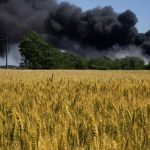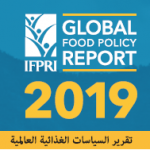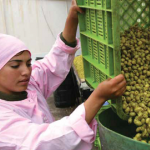The deal, put in place almost a year before, was scheduled for its fourth renewal. Within hours of the announcement, Russia launched a missile attack on the port of Odesa. The following day, Russian missile attacks on key Ukraine grain handling facilities sent wheat futures prices to their largest one-day rise since February 2022. A cargo insurer operating under the agreement reportedly suspended its coverage of Ukraine Black Sea grain shipments.
The Russia-Ukraine Conflict and Global Food Security
When Russia invaded Ukraine in February 2022, sparking fears of a global food crisis, IFPRI responded rapidly to the need for information and policy advice to address the crisis. From the first moments of the conflict, a new IFPRI blog series provided critical information and insights into the impacts on food security, caused by rising food, fertilizer, and fuel prices and trade disruptions, for vulnerable countries and regions.
Decade of the Women’s Empowerment in Agriculture Index (WEAI): Lessons from Using Empowerment Metrics
The Women’s Empowerment in Agriculture Index (WEAI) is the first-ever direct measure of women’s empowerment and inclusion in the agriculture sector, and has been named one of CGIAR’s top innovations. Since its launch in 2012, WEAI-based metrics have been used by over 230 organizations across 58 countries to track progress toward women’s empowerment and gender equality
2019 Global food policy report: Synopsis
[available in English and Arabic]
IFPRI’s flagship report reviews the major food policy developments and decisions of the past year, and looks ahead to 2019.
يستعرض التقرير الرئيسي للمعهد الدولي لبحوث السياسات الغذائية التطورات والقرارات الرئيسية المتعلقة بالسياسة الغذائية في العام الماضي، ويتطلع إلى عام 2019
Report: Agriculture and Economic Transformation in the Middle East and North Africa: A review of the past with lessons for the future
Alejandro Nin Pratt, Hoda El-Enbaby, Jose Luis Figueroa, Hagar Eldidi, and Clemens Breisinger
The agriculture sector is key for economic and social development, but the sector’s potential has not received enough attention from policy makers and stakeholders in the Middle East and North Africa (MENA) region. Political transitions, instability, and the resulting refugee crisis have shifted focus away from other pressing development challenges, including slow progress in economic diversification, high unemployment, and persistent high food insecurity and rural poverty.





